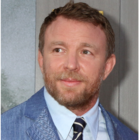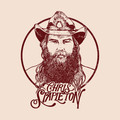(Okinawan pronunciation: ) is a martial art developed in the Ryukyu Kingdom. It developed from the indigenous Ryukyuan martial arts (called "hand"; tii in Okinawan) under the influence of Kung Fu, particularly Fujian White Crane. Karate is now predominantly a striking art using punching, kicking, knee strikes, elbow strikes and open-hand techniques such as knife-hands, spear-hands and palm-heel strikes. Historically, and in some modern styles, grappling, throws, joint locks, restraints and vital-point strikes are also taught. A karate practitioner is called a . The Empire of Japan annexed the Ryukyu Kingdom in 1879. Karate came to the Japanese archipelago in the early 20th century during a time of migration as Ryukyuans, especially from Okinawa, looked for work in Japan. It was systematically taught in Japan after the Taishō era of 1912-1926. In 1922 the Japanese Ministry of Education invited Gichin Funakoshi to Tokyo to give a karate demonstration. In 1924 Keio University established the first university karate club in mainland Japan, and by 1932 major Japanese universities had karate clubs. In this era of escalating Japanese militarism, the name was changed from ("Chinese hand" or "Tang hand") to ("empty hand") – both of which are pronounced karate in Japanese – to indicate that the Japanese wished to develop the combat form in Japanese style. After World War II, Okinawa became (1945) an important United States military site and karate became popular among servicemen stationed there. The martial-arts movies of the 1960s and 1970s served to greatly increase the popularity of martial arts around the world, and English-speakers began to use the word karate in a generic way to refer to all striking-based Asian martial arts. Karate schools began appearing across the world, catering to those with casual interest as well as those seeking a deeper study of the art. Shigeru Egami, Chief Instructor of Shotokan Dojo, opined that "the majority of followers of karate in overseas countries pursue karate only for its fighting techniques ... Movies and television ... depict karate as a mysterious way of fighting capable of causing death or injury with a single blow ... the mass media present a pseudo art far from the real thing." Shōshin Nagamine said: "Karate may be considered as the conflict within oneself or as a life-long marathon which can be won only through self-discipline, hard training and one's own creative efforts." On 28 September 2015 karate featured on a shortlist (along with baseball, softball, skateboarding, surfing, and sport climbing) for consideration for inclusion in the 2020 Summer Olympics. On 1 June 2016 the International Olympic Committee's executive board announced they were supporting the inclusion of all five sports (counting baseball and softball as only one sport) for inclusion in the 2020 Games. Web Japan (sponsored by the Japanese Ministry of Foreign Affairs) claims that karate has 50 million practitioners worldwide, while the World Karate Federation claims there are 100 million practitioners around the world.




